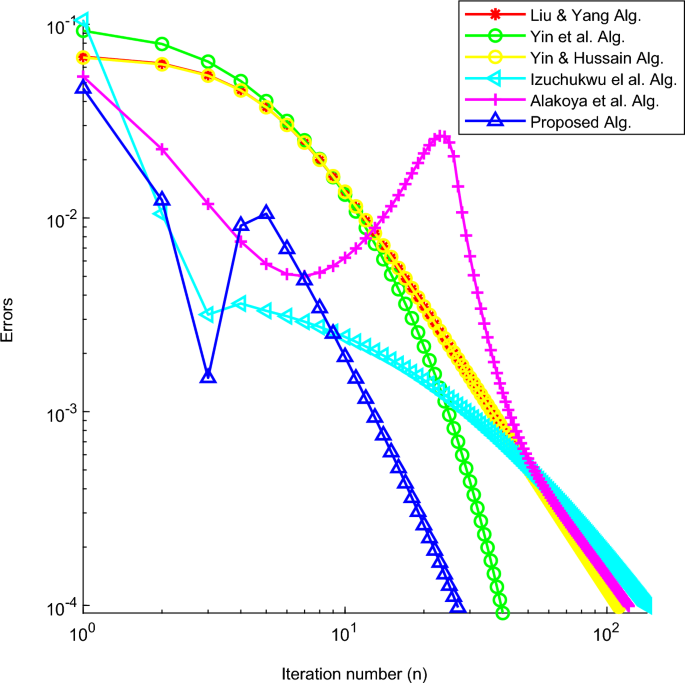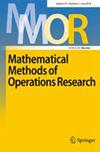求解准单调和非单调变分不等式
IF 1.2
4区 数学
Q3 MATHEMATICS, APPLIED
引用次数: 0
摘要
我们提出了一种简单的迭代方法,用于求解无单调性的类下调不等式和经典变分不等式。我们给出了在温和条件下的强收敛性分析,从而推广了仅在限制性假设下提出弱收敛方法的少数现有结果。我们给出了有限维和无限维数值示例,以比较和说明所提方案的简单性和计算优势。本文章由计算机程序翻译,如有差异,请以英文原文为准。

Solving quasimonotone and non-monotone variational inequalities
We present a simple iterative method for solving quasimonotone as well as classical variational inequalities without monotonicity. Strong convergence analysis is given under mild conditions and thus generalize the few existing results that only present weak convergence methods under restrictive assumptions. We give finite and infinite dimensional numerical examples to compare and illustrate the simplicity and computational advantages of the proposed scheme.
求助全文
通过发布文献求助,成功后即可免费获取论文全文。
去求助
来源期刊
CiteScore
1.90
自引率
0.00%
发文量
36
审稿时长
>12 weeks
期刊介绍:
This peer reviewed journal publishes original and high-quality articles on important mathematical and computational aspects of operations research, in particular in the areas of continuous and discrete mathematical optimization, stochastics, and game theory. Theoretically oriented papers are supposed to include explicit motivations of assumptions and results, while application oriented papers need to contain substantial mathematical contributions. Suggestions for algorithms should be accompanied with numerical evidence for their superiority over state-of-the-art methods. Articles must be of interest for a large audience in operations research, written in clear and correct English, and typeset in LaTeX. A special section contains invited tutorial papers on advanced mathematical or computational aspects of operations research, aiming at making such methodologies accessible for a wider audience.
All papers are refereed. The emphasis is on originality, quality, and importance.

 求助内容:
求助内容: 应助结果提醒方式:
应助结果提醒方式:


